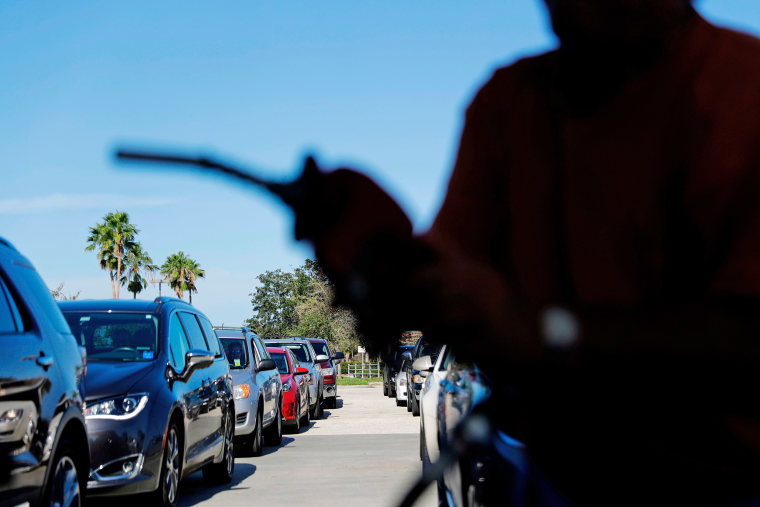Ford will find itself in the crosshairs Tuesday as a coalition of consumer and environmental groups wraps up a journey from the nation’s capital to the Motor City in a bid to block the rollback of Obama-era mileage standards.
The petition drive is meant to put pressure on a company that had called on President Donald Trump to ease mileage rules or risk losing more than 1 million jobs. It coincides with a lawsuit announced last week by 17 states and the District of Columbia to prevent a rollback.
Representatives of Public Citizen, the Sierra Club, Greenpeace USA, CREDO and Care2 will hold a series of rallies that will wind up at Ford's headquarters in the Detroit suburb of Dearborn. There, they aim to deliver petitions bearing 250,000 signatures opposing the EPA’s plan to roll back the Corporate Average Fuel Economy standard, or CAFE, by nearly 25 percent from the original 2025 target. The agency is expected to unveil its revised plan in the coming days.
“This phalanx of states will defend the nation’s clean car standards to boost gas mileage and curb toxic air pollution,” California Gov. Jerry Brown said at a news conference announcing the legal action, adding, “This is about health, it’s about life and death.”
The current CAFE standard calls for steadily increasing the fuel economy of the average light vehicle sold in the U.S. to 54.5 miles per gallon by 2025. An EPA draft resolution that leaked last week would bring that down to just under 42 mpg.
The Trump administration also wants to strip California of a special waiver enacted as part of the original 1970 Clean Air Act that allows it to set its own standards for pollutants like smog-causing oxides of nitrogen and greenhouse gas carbon dioxide. CO2 and fuel economy are inextricably linked, so the lower the permitted level of CO2, the higher the effective mileage.
Typically, California has enacted tougher pollution standards than the EPA. And a dozen other states have chosen to adopt the Golden State guidelines, rather than the more lenient federal mandate. Since they represent nearly one-third of the U.S. automotive market, auto manufacturers say there would be no way to actually ease their mileage targets without eliminating the California waiver.
The auto industry originally agreed to a rare compromise with the federal government and environmentalists to set the 54.5 mpg mandate. But the deal called for a “midterm review” to measure progress and determine whether a rollback might be justified. The EPA director in the Obama administration, Gina McCarthy, ruled the number viable just before that administration left office. Her successor, the now embattled Scott Pruitt, almost immediately reversed course, promising to re-open that review.
A number of senior auto industry executives lent their support during a meeting with Trump last year, shortly after he took office. Mark Fields, then the CEO of Ford, warned that the cost of meeting the CAFE target could sharply reduce new vehicle sales and cost 1 million auto jobs.
Ford officials have been trying to reposition the company’s stance, with Executive Chairman Bill Ford and president and CEO Jim Hackett last week issuing a statement declaring, “We support increasing clean car standards through 2025 and are not asking for a rollback.”
But Ford has also soured proponents of better mileage by announcing plans to eliminate nearly all of its passenger car models in favor of more profitable, albeit lower-mileage utility vehicles over the next several years.
Whether public pressure will lead the EPA to reconsider is uncertain. But proponents of better mileage, including officials representing more than a third of the states, say they will battle it out in court, if need be.
